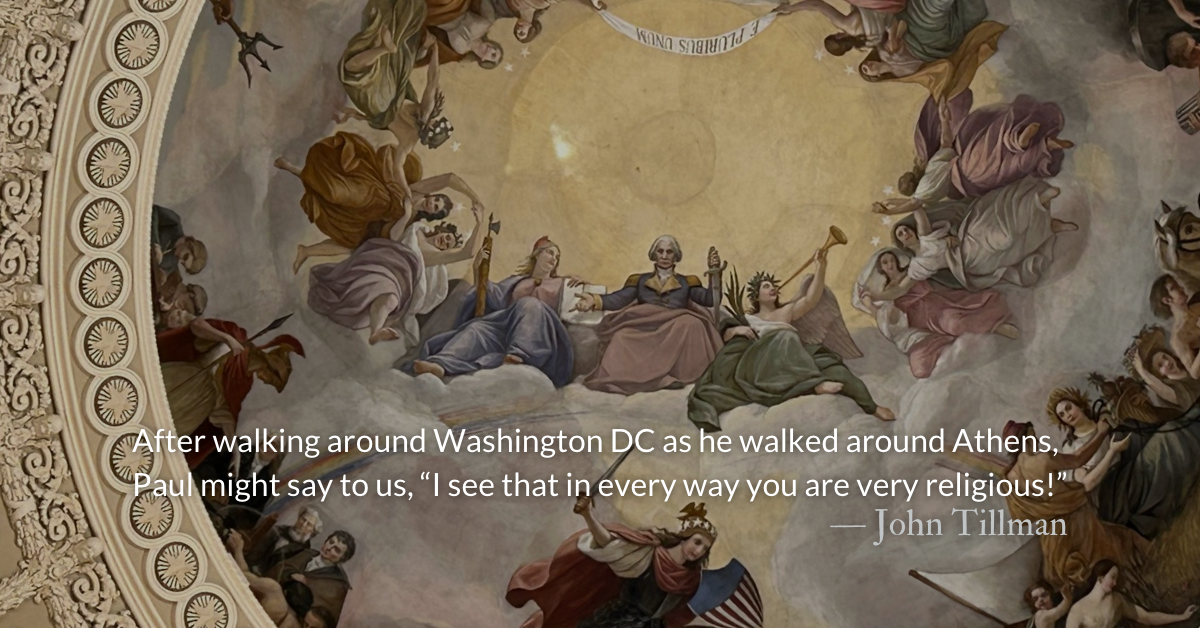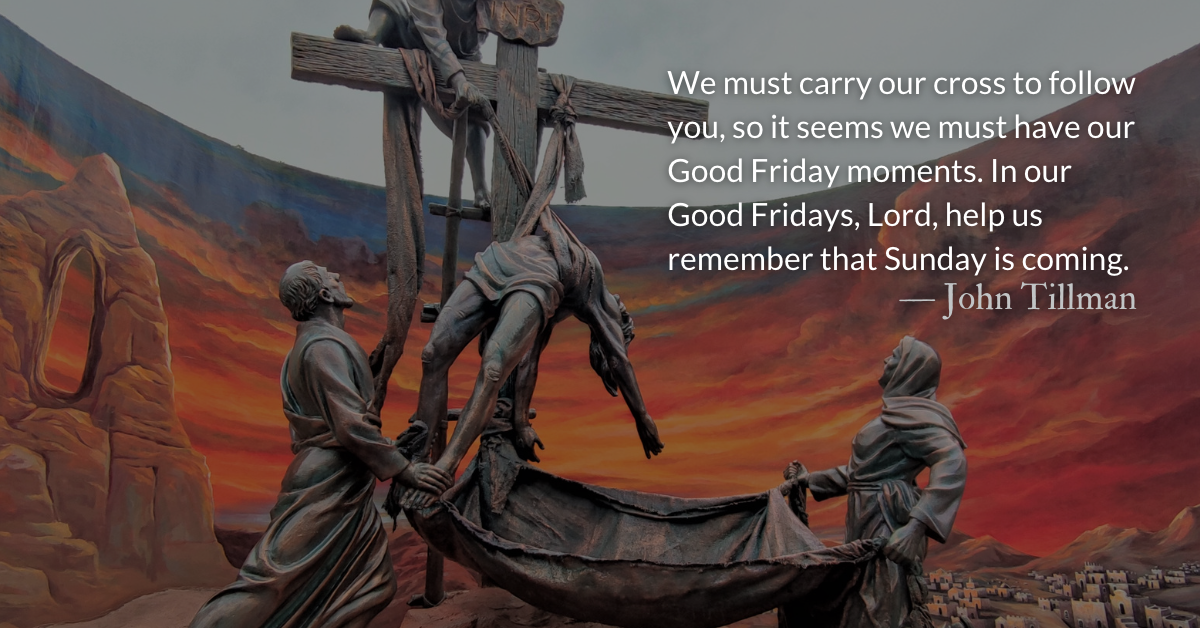Scripture Focus: Acts 17.16-21
16 While Paul was waiting for them in Athens, he was greatly distressed to see that the city was full of idols. 17 So he reasoned in the synagogue with both Jews and God-fearing Greeks, as well as in the marketplace day by day with those who happened to be there. 18 A group of Epicurean and Stoic philosophers began to debate with him. Some of them asked, “What is this babbler trying to say?” Others remarked, “He seems to be advocating foreign gods.” They said this because Paul was preaching the good news about Jesus and the resurrection. 19 Then they took him and brought him to a meeting of the Areopagus, where they said to him, “May we know what this new teaching is that you are presenting? 20 You are bringing some strange ideas to our ears, and we would like to know what they mean.” 21 (All the Athenians and the foreigners who lived there spent their time doing nothing but talking about and listening to the latest ideas.)
Image Note from John: The image in today’s post is a picture I took of “The Apotheosis of Washington” in the US Capitol, painted in 1865 by Constantino Brumidi.
Reflection: Apotheosis of Politics
By John Tillman
The United States drinks deeply from Greek and Roman culture—perhaps more deeply than it does from Christianity.
The founders of the United States were undeniably inspired by Christian ideals. But they were also undeniably inspired by Roman power structures and Greek theological anthropology that separates body and spirit.
The United States, in many ways, is a Christian nation. However, the influence of pre-Christian Greco-Roman ideals is so strong that one could say with equal support that the United States is a Greco-Roman nation.
As I write, I am visiting friends in Virginia, near Mount Vernon, and I’m sitting on a bench on the National Mall in DC, where the very layout of the streets and the architecture speak loudly about Greco-Roman influence.
Imagine standing with me and Paul in the dome of the Capitol to my right. Looking up, we would see, painted on the cupola “The Apotheosis of Washington.” Apotheosis means the elevating of someone to a god-like status. Washington looks down on us as he rises into heaven, surrounded by female figures representing victory/fame and liberty. Imagine walking with Paul past the Washington Monument to my left to see Abraham Lincoln sitting on a throne in a temple.
After walking around Washington DC as he walked around Athens, Paul might say to us, “I see that in every way you are very religious!”
I am a very patriotic person but I would probably respond to Paul saying, “Hey, we don’t REALLY worship these men or this country.” We might say, “Relax, Paul, it’s metaphorical…”
But metaphors shape our thinking and if I’m honest, sometimes the way patriotism slides towards holy reverence bothers me. The way the founding fathers (or current want-to-be leaders) are venerated as if they were apostles or Moses or Jesus, frightens me. The way some equate the inspiration of our founding documents to the inspiration of the scriptures terrifies me.
As traditional religion declines, politics is the newest, fastest-growing religion. Political parties are denominations and candidates are gods and apostles. We must beware the temptations of this apotheosis of politics.
Jesus is indeed a “foreign god” to us. (Acts 17.18) His kingdom is opposed to, not aligned with, any human government or party. He intends to bring down the exalted and exalt the humiliated and the humble. We must hold our patriotism and our political activism more lightly than our faith.
Divine Hours Prayer: The Morning Psalm
Why are the nations in an uproar? Why do the peoples mutter empty threats?
Why do the kings of the earth rise up in revolt, and the princes plot together, against the Lord and against his Anointed?… Psalm 2.1-2
Divine Hours Prayer: The Greeting
You are the Lord, most high over all the earth; you are exalted far above all gods. — Psalm 97.9
– From The Divine Hours: Prayers for Springtime by Phyllis Tickle.
Today’s Reading
Leviticus 21 (Listen 3:08)
Acts 17 (Listen 5:28)
Read more about The Seductive Idolatry of Politics
Politics is the idol we bring with us to church just as the Israelites worshiped Baal alongside Jehovah.
Read more about Be Yoked to Christ, Not Politics
May no party or human leader be permitted to yoke us or Christ’s church to their cause.






